Gold Panning in Jayapura: Workers’ Struggle Between Landslide Risks and Economic Hardship
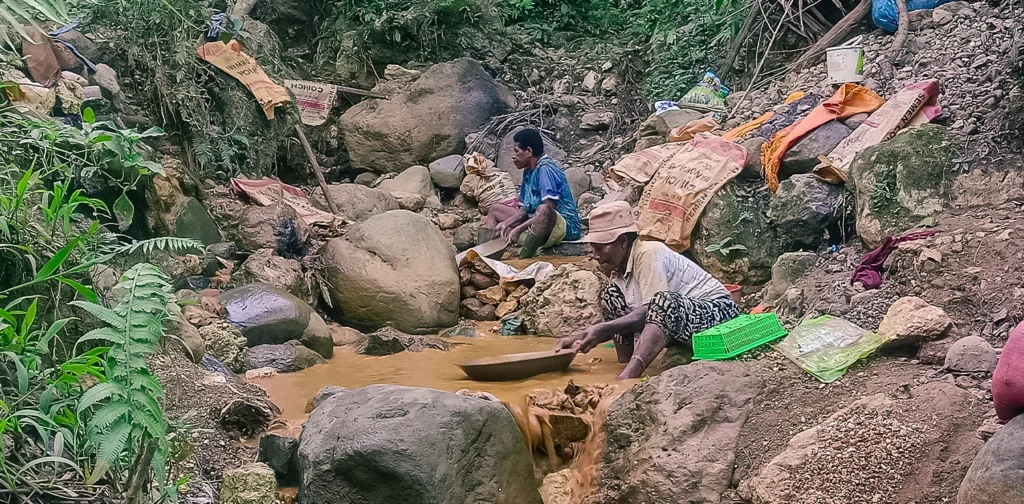
Women who works as gold panners at Ardipura Village, South Jayapura, Jayapura, Papua. | Photo: Tiffany Mnumumes.
Jayapura is a city located in the easternmost region of Indonesia and the capital of Papua Province, which shares a direct border with Papua New Guinea. What comes to mind when you think about their livelihoods? Sago gatherers, or traditional bamboo craftsmen? Perhaps fishermen? Or tour guides? While all of these are right, there is one more occupation that may be less well-known: traditional gold panning.
This job was initially a promising source of income. However, as time passes, the city’s gold panners are increasingly threatened by the risk of landslides, which can occur at any moment. Pressured by financial situations, they are forced to continue working anyway.
Traditional Gold Panning in Jayapura
In South Jayapura, specifically in Ardipura Village near where I currently reside, there is a traditional gold mining site. Locals often use the term ‘dulang emas’ (gold panning) when referring to this traditional technique of extracting gold from sand with a pan. This activity has been going on since the 1990s.
Robert Inuri (60), a local resident who works as a traditional gold panner, told me that the gold panning site used to be a creek and a community garden planted with various crops. It was once full of cassava, sweet potatoes, chili peppers, papaya, and betel nuts. However, since residents discovered the existence of gold deposits in the soil, the site has been transformed to pursue the gold.
Robert also said that the gold contained in Ardipura’s soil has 24-carat quality. He learned this from the gold buyers, usually owners of gold shops in downtown Jayapura. In the past, residents could gather up to 10 grams of gold per day. Unfortunately, over the past two years, their yields have significantly lowered, often reaching only 0.5 grams per day.
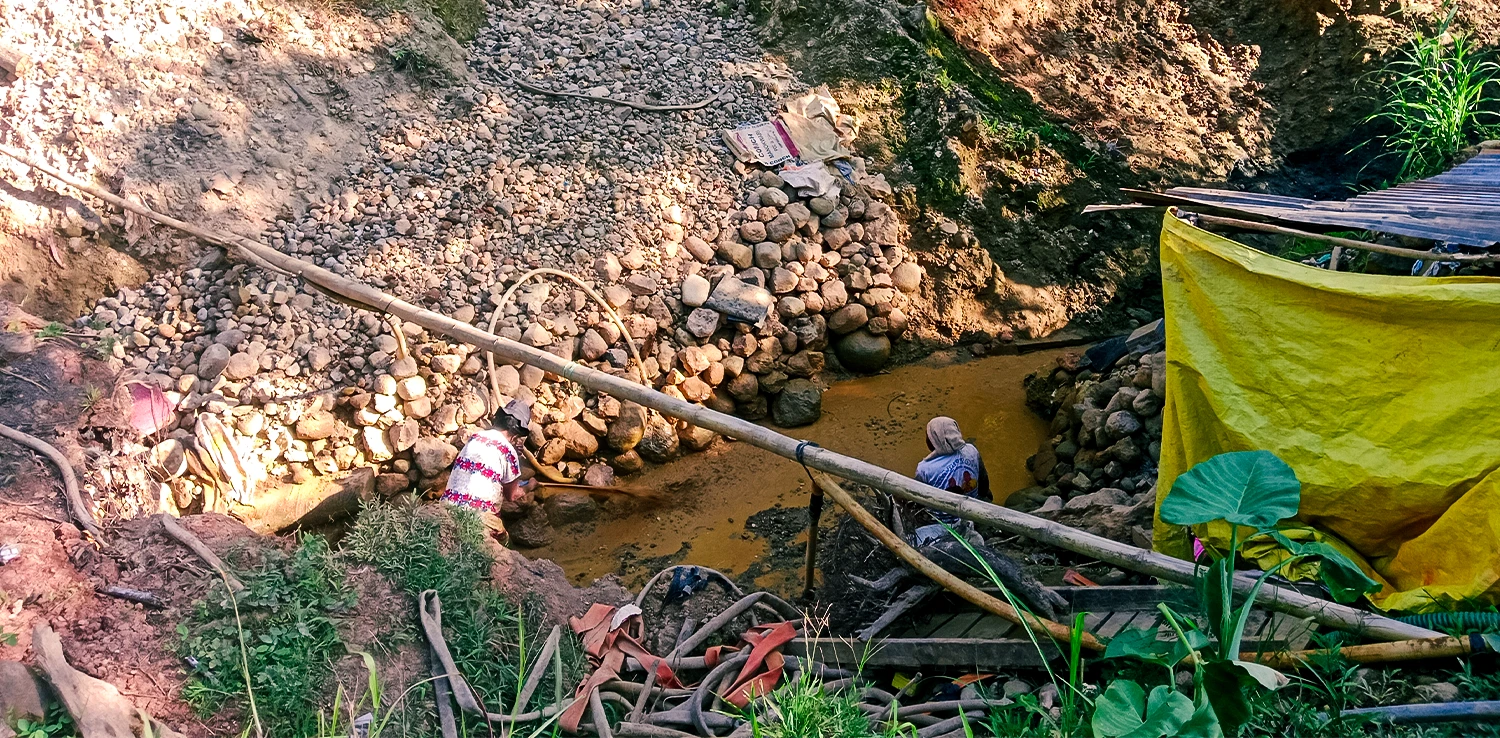
Prone to Landslides
Behind its large mineral resources, the South Jayapura District is prone to landslides. This is even stipulated in Regional Regulation No. 5 of 2008 on the Jayapura City Spatial Planning Plan. The regulation designates the South Jayapura District, along with two other districts, as a mining area. At the same time, it is also a water catchment area and prone to natural disasters, such as landslides. For us, local residents, landslides have become a common occurrence.
Markus Sumbari, Head of Neighborhood Association (RT) 003, said, “The gold panning activity has seriously impacted residents’ houses, with many damaged by landslides. Some residents are now worried because their yards have been wrecked by the landslides.”
This landslide issue has long been a concern for the Village Government, the Environmental Agency, and even the Mayor of Jayapura. The government has issued direct appeals and prohibitions to local residents to halt mining activities due to the fragile soil structure and the risk of landslides. However, residents have not taken the warnings seriously, as economic pressures force them to continue working as gold panners.
“Traditional gold panning techniques (using a pan or sieve and water) do not accelerate soil degradation as much. However, many residents use water pumps to speed up the process of separating the gold from the soil, thus increasing the digging intensity,” said Markus, who has been serving as Head of Neighborhood Association (RT) 003 since 2017.
An Irony
While exploring the gold panning site, I met women who were taking a break and enjoying their packed lunches before resuming their work. After greeting them and asking permission, we shared stories about their daily lives as housewives who also work as gold panners to support their husbands amid constant food shortages.
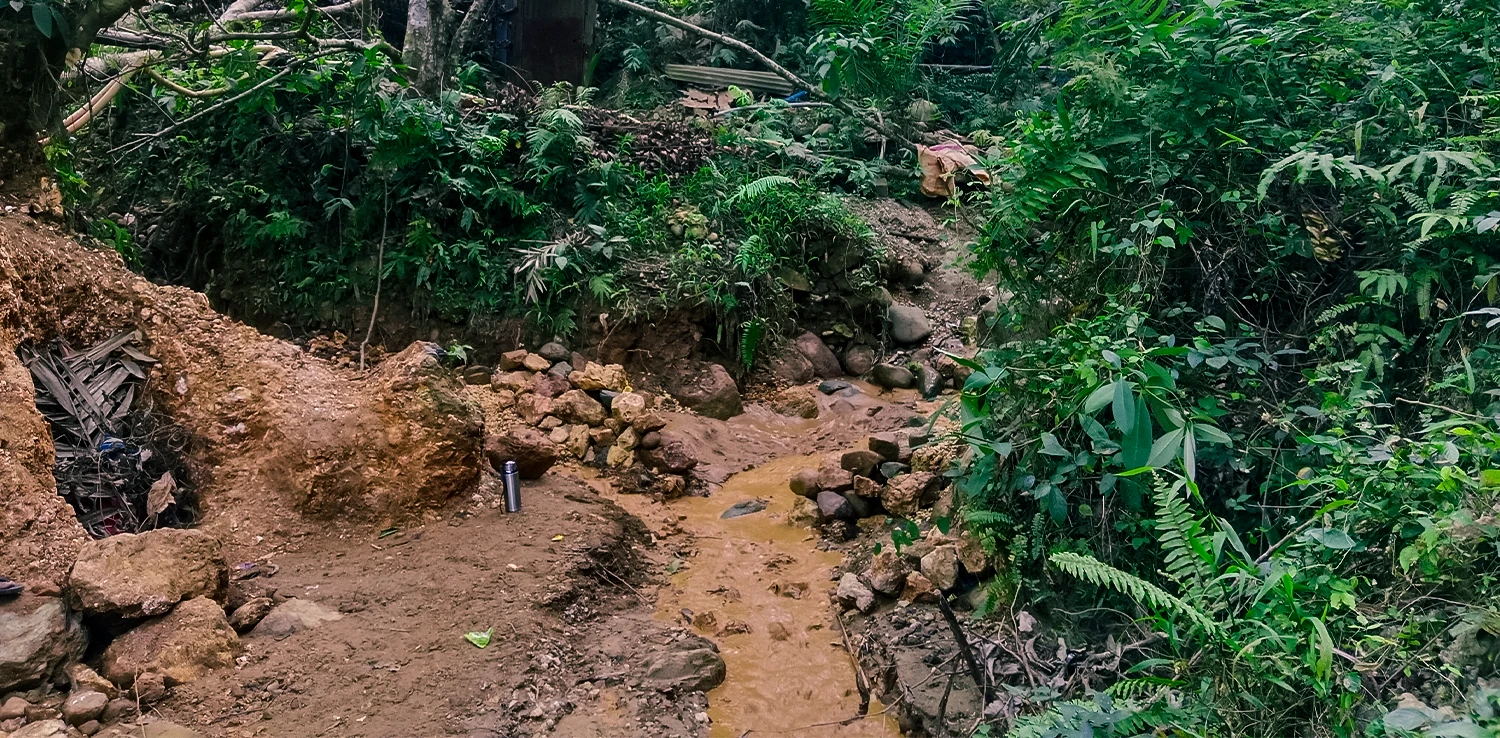
The physical exhaustion and mosquito bites they get while working seem to pay off when they finally find a gold nugget. The women said that the money they earn from selling gold these days is barely enough to cover daily food needs, forcing them to work every day from 8:00 a.m. to 4:00 p.m. If they are still empty-handed by afternoon, the women sometimes continue working until midnight before finally giving in due to fatigue and returning home with nothing.
Moreover, the route to the gold panning site is not an easy one. The fragile soil structure requires the panners to exercise extreme caution. Landslides, fallen trees, and several damaged houses are visible on either side of the path. Amidst the bleak scenery, the incessant sound of water sprayers can be heard, mixed with the jokes of traditional gold panners as they entertain themselves after the afternoon’s heavy work.
The demands of urban life are indeed challenging. According to the Jayapura City Statistics Agency (BPS), the percentage of the population living below the poverty line in 2024 was estimated to be 10.72%, with Papua Province contributing the largest share at 17.26%. Lack of access to education, limited job skills, and limited employment opportunities, coupled with the increasing flow of urbanization and transmigration in Jayapura City, pose challenges for the local government in addressing existing social inequality.
Furthermore, the impact of gold mining activities on environmental damage and the risk of natural disasters will continue to haunt the lives of Ardipura residents. It is indeed a true irony: for the sake of a daily meal, residents must ignore the risks to their safety and the security of their painstakingly built homes.
Editor: Abul Muamar & Nazalea Kusuma
Translator: Kresentia Madina
The original version of this article is published in Indonesian at Green Network Asia – Indonesia.

Co-create positive impact for people and the planet.
Amidst today’s increasingly complex global challenges, equipping yourself, team, and communities with interdisciplinary and cross-sectoral insights on sustainability-related issues and sustainable development is no longer optional — it is a strategic necessity to stay ahead and stay relevant.
Tiffany Mnumumes
Tiffany adalah Sarjana Biologi dari Universitas Cenderawasih, Jayapura. Ia berpengalaman di bidang konservasi selama tiga tahun dan memiliki semangat untuk mengangkat nilai-nilai kearifan lokal dalam pengelolaan sumber daya alam di Papua. Ia memiliki minat dalam riset, analisis data, dan menulis.


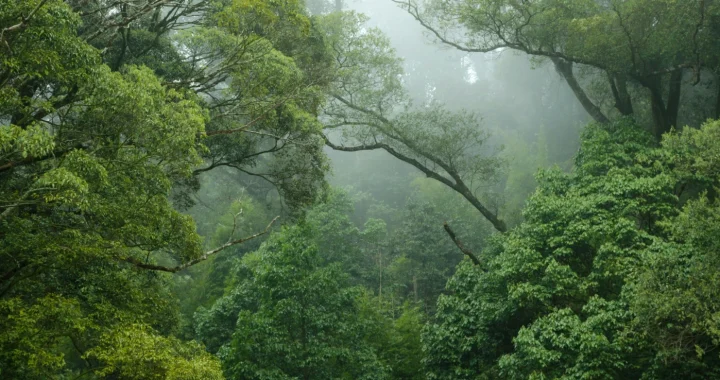 Global Shifts in Forest Dynamics and Their Impact on Biodiversity and Resilience
Global Shifts in Forest Dynamics and Their Impact on Biodiversity and Resilience 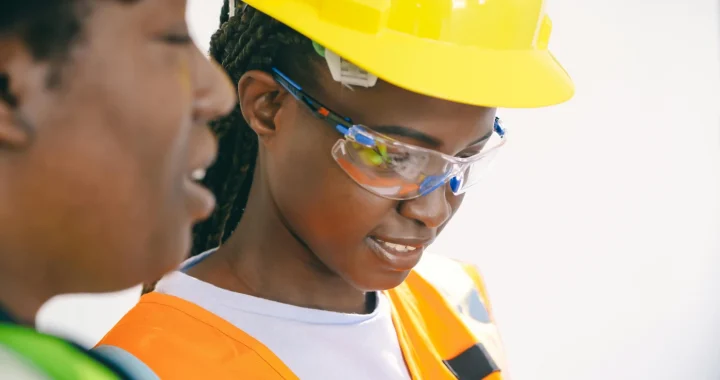 Trends and Gaps for Women in STEM
Trends and Gaps for Women in STEM 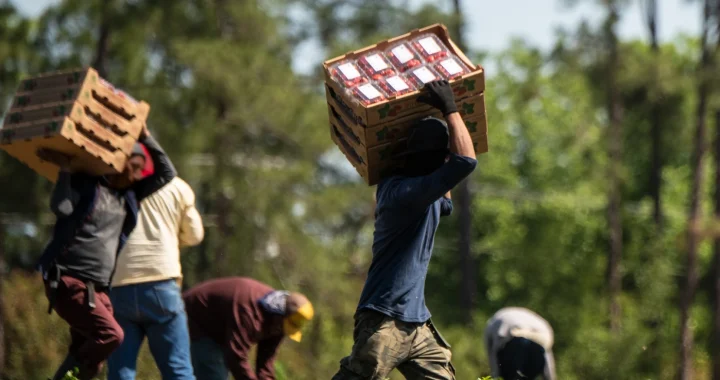 Addressing the Harsh Reality of Temporary Labor Migration Programs
Addressing the Harsh Reality of Temporary Labor Migration Programs 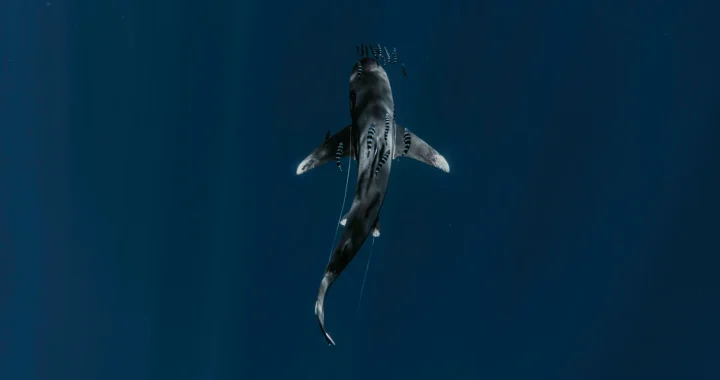 Mapping Conservation Needs for Sharks and Rays Globally
Mapping Conservation Needs for Sharks and Rays Globally 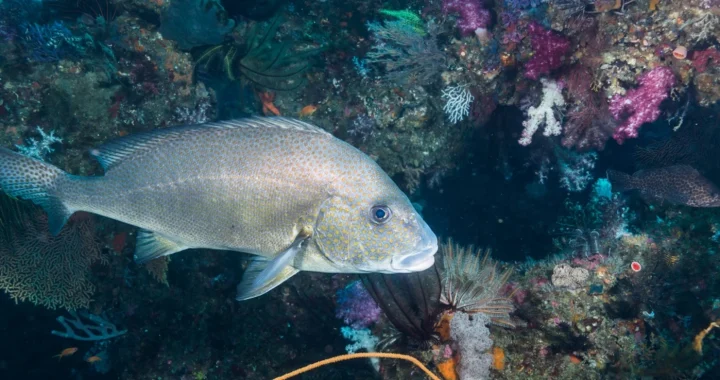 Hamdan bin Zayed Initiative: Abu Dhabi’s Path to Achieve the World’s Richest Seas
Hamdan bin Zayed Initiative: Abu Dhabi’s Path to Achieve the World’s Richest Seas 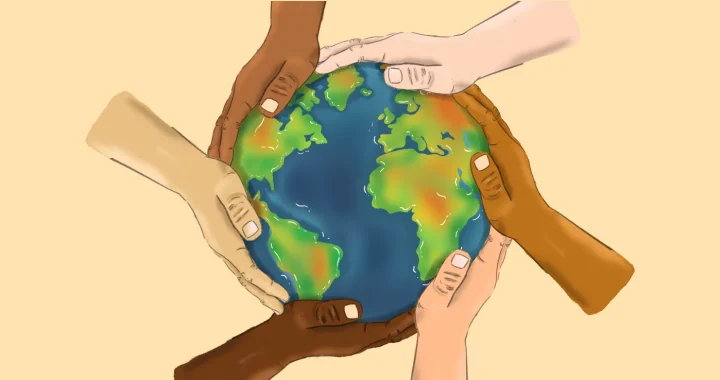 How Human Behaviour Becomes the Real Engine of Sustainability Action
How Human Behaviour Becomes the Real Engine of Sustainability Action